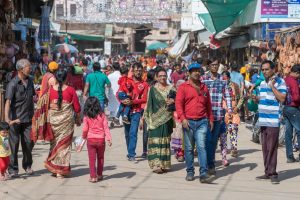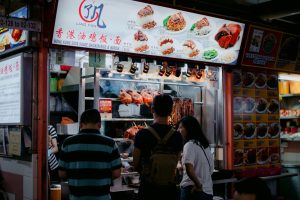In psychology, post-traumatic growth (PTG) is a concept that describes positive psychological changes experienced as a result of struggles with highly challenging and stressful life circumstances. COVID-19 lockdowns or being diagnosed with COVID-19 can be challenging and stressful, but this has also led to some people developing PTG. Read on more below to find out how the COVID-19 pandemic has resulted in post-traumatic growth in many people despite the challenges and difficulties faced across the globe!
The Trauma Itself – COVID-19 & Lockdowns
Although some people experience no symptoms when diagnosed with COVID-19, many others have symptoms such as fever, fatigue, muscle aches or even shortness of breath. All positively tested patients are required to isolate at home in most jurisdictions. These isolations usually last from 2 to 4 weeks, depending on how soon the patient tests negative. For patients, aside from the physical manifestations of COVID-19, isolating can cause immense mental pressure as well. The uncertainty of whether they will recover; missing work, some without pay; and missing the company of their family and friends can all be stressful for patients.
For individuals lucky enough not to contract COVID-19, lockdowns are common and frequent in Asia. Work from home orders and minimal outdoor activities mean that many people feel isolated or depressed.
What are the features of Post-traumatic Growth?
Unlike medication, post-traumatic growth isn’t something a psychologist can prescribe. However, it is something that can be encouraged and cultivated. The theory of PTG states that people can emerge from trauma or adversity having achieved positive personal growth. Here are some general features of post-traumatic growth after COVID-19:
- Appreciation of life: if you contracted COVID-19 and recovered, congratulations! Appreciate the fact that you are healthy and alive.
- New possibilities in life: with lockdowns coming to an end, entertainment venues reopening, and going back to the office, there are so many things we have wanted to do but have not been able to in the past two years. Get on with them!
- Relationships with others: lockdowns can be isolating. However, we are social animals, it is important to catch up with friends and meet more people!
- Personal strength: be resilient, and remember your strength!
- Spiritual change: change in understanding of religion, or a change in spiritual attitude.
How is the Asian population doing in terms of PTG?
Assessing PTG is a complicated procedure and requires subjective self-ratings. A research carried out in Hong Kong SAR in September 2021 showed that only 18% of participants showed PTG in either one or a combination of domains. It also indicated that having an above-median monthly household income, tertiary education, and being with a family member or close friend who has experienced medical quarantine or tested positive for COVID-19 were related to a higher likelihood of PTG.
No similar research has been carried out in other Asian countries.
Conclusion
As the majority of Asian countries are ceasing lockdowns, media attention should be focused on people’s post-traumatic growth from COVID-19 experiences. More medical research is also needed to address the issue.











